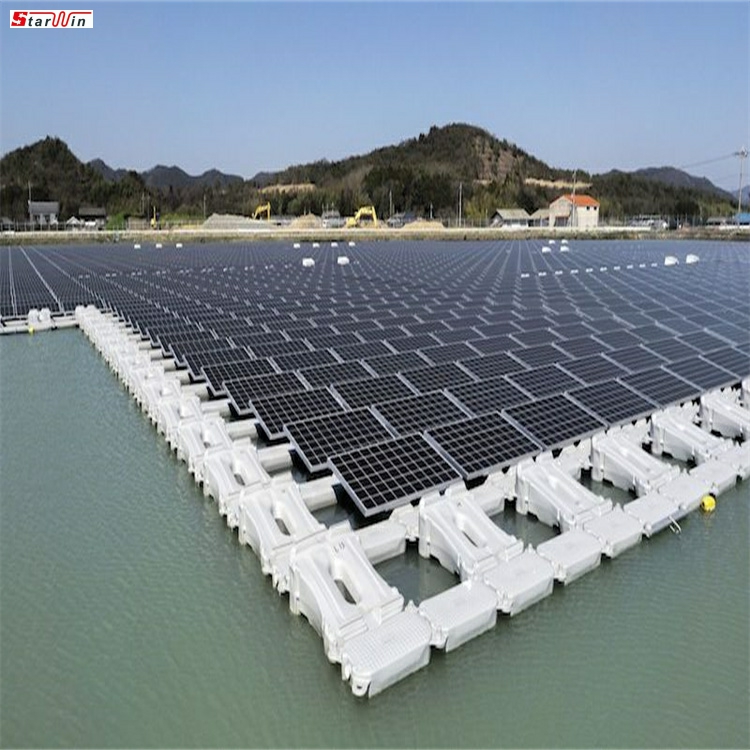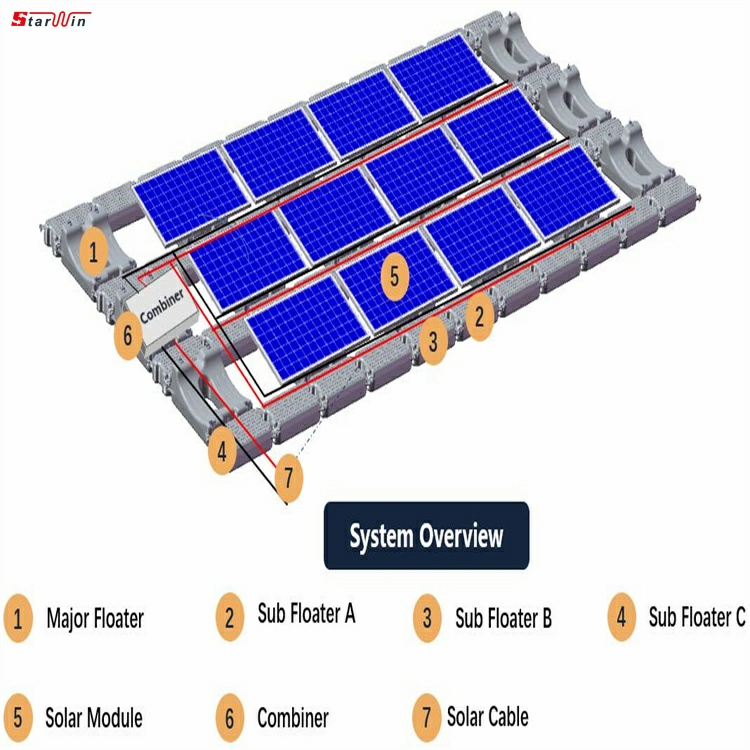A floating solar panel system, often referred to as a "floatovoltaic" system, consists of solar panels mounted on a buoyant structure that allows them to float on a body of water. This innovative approach utilizes water surfaces to generate solar energy without consuming valuable land resources.
Floating solar systems are ideal for installation on man-made bodies of water, including reservoirs, irrigation ponds, quarry lakes, and water treatment facilities. These locations provide large water surfaces, which are beneficial for sizable solar installations.
Floating solar systems help conserve land and reduce water evaporation from the bodies of water they cover, which can be crucial in arid regions. Additionally, the cooling effect of water increases the efficiency of solar panels, enhancing their energy output.
Floating structures are commonly made from durable, buoyant materials like high-density polyethylene (HDPE) or fiberglass. These materials are chosen for their resistance to corrosion, UV radiation, and their environmental safety, as they do not leach harmful chemicals into the water.

FAQs: Floating Solar Panel Systems
1. How are these systems anchored and secured?
Floating solar systems are anchored using mooring lines or cables connected to the lake or reservoir bed. The design ensures stability against wind and current movements while allowing for slight fluctuations in water level.
2. What maintenance is required for floating solar systems?
Maintenance typically includes regular cleaning of solar panels to remove debris and biofilm buildup, inspection of the anchoring and mooring systems, and checks for any structural wear and tear. It is comparatively lower than land-based systems due to reduced soiling and the cooling effects of water.
3. Are floating solar systems safe for wildlife and aquatic ecosystems?
Properly designed floating solar installations have minimal impact on aquatic ecosystems. The platforms can provide shelter for aquatic life and reduce algae growth by shading the water. However, environmental impact assessments are recommended to address any site-specific concerns.
4. What is the expected lifespan of a floating solar panel system?
Floating solar panel systems are designed to last for 25-30 years, similar to traditional ground-mounted solar systems. The longevity depends on the quality of materials used and adherence to maintenance schedules.
5. Can floating solar systems withstand harsh weather conditions?
Floating solar systems are engineered to endure a variety of weather conditions, including high winds, rain, and changes in temperature. Specific designs incorporate flexible mooring that can adapt to changing water levels and absorb wave energy.
6. How cost-effective are floating solar systems compared to traditional solar farms?
While the initial installation cost of floating solar systems may be higher due to the specialized floating structures and mooring systems, the increased efficiency from water cooling and the savings on land costs can make them more cost-effective in the long run. Detailed cost-benefit analyses considering local conditions should be conducted for an accurate comparison.
